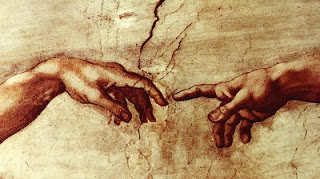A theory of human nature must consider from the start whether it sees human beings in fundamentally biological terms, as animals like other animals, or else in fundamentally supernatural terms, as creatures of God who are like God in some special way, and so importantly unlike other animals. Many of the perennial philosophical disputes have proved so intractable in part because their adherents divide along these lines. The friends of materialism, seeing human beings as just a particularly complex example of the sort of complex organic structure found everywhere on Earth, suppose that we are ultimately constituted out of just the same material from which squirrels and rabbits are made. The friends of dualism, instead, think that such a story can hardly do justice to what is special about human nature. Likewise, the friends of a libertarian, robustly nondeterministic conception of free will see something special in human spontaneity and moral responsibility.
To their opponents, human beings operate on the same principles, albeit more complex, as do squid and plankton. These and other such disputes need not divide along religious lines. One may oppose naturalism without embracing a supernatural theistic perspective; one might, for instance, think it simply a matter of fact that human beings are fundamentally unlike other biological organisms, but yet not suppose we are made that way by any higher power. Conversely, the theist may think it part of the divine plan to have made human beings as nothing more than the most complex of biological organisms, constituted out of the same stuff and constrained by the same laws. So although the choice I have described between two perspective —biological and naturalistic versus theological and supernatural—captures an important fault line that runs through the debate over human nature, it by no means determines all of one’s subsequent philosophical choices.
The philosophy of Thomas Aquinas exemplifi es the sorts of tensions that arise from these two perspectives. For while the overall orientation of Aquinas’s work is, of course, profoundly theistic, he nevertheless harbors a certain sympathy for a naturalistic, biological understanding of human nature. In some cases, as in his account of the human intellect, the supernaturalist slant clearly wins out. In other cases, as in his conception of human beings as a soul–body union, it is equally clear that biological considerations are paramount. In still other cases, as for instance his views on free will, it is very diffi cult to say which line of thought holds sway, and the preference of interpreters for one reading or another seems largely governed by
their own predilections.
The traditional way of making this point about Aquinas is to describe him as mediating between the theological teachings of the Church and the philosophical writings of Aristotle. Historically, this is an apt place to begin thinking about Aquinas’s philosophy, because there is no doubt that the central philosophical challenge Aquinas faced over the course of his career was to fi nd a place for the newly recovered work of Aristotle within the overriding framework of Christian belief. 1 To fi nd a place for Aristotle, however, means fi nding a place for a conception of human nature that is decidedly biological in its overall orientation. This is clear from the fundamental Aristotelian text on human nature, the De anima , which as it happens was the subject of the fi rst and most careful of Aquinas’s many Aristotelian commentaries. For us, the notion of a soul ( anima ) has become fi rmly associated with a supernatural perspective on human nature. But for Aristotle the term “soul” has not the slightest of nonnaturalistic implications. On the contrary, a soul is something that all living things possess, from human beings down to the simplest of life forms, and indeed the De anima is not so much a study of human nature as it is the foundational treatise in Aristotle’s long sequence of biological works.
Home
»
Biological or Theological
»
Human nature
»
robert pasnau
» Human nature, Biological or Theological?
Friday, May 31, 2013
Subscribe to:
Post Comments (Atom)

0 comments:
Post a Comment